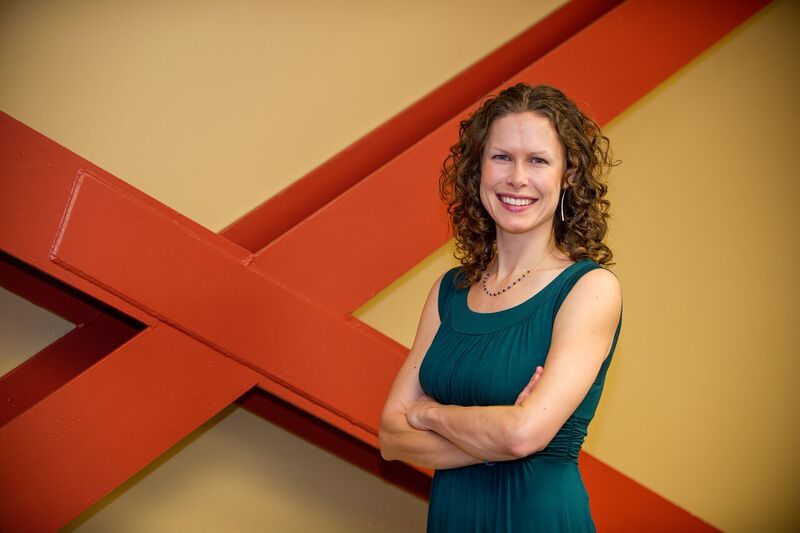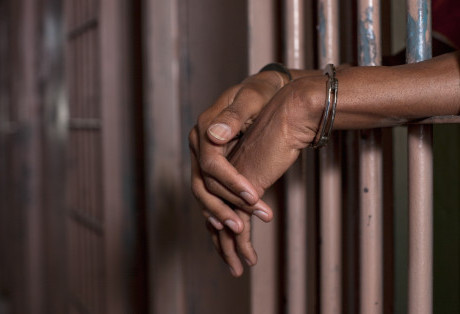Meredith Desautels
Racial Justice Staff Attorney

Leading Edge Idea: Ending the incarceration of youth
Meredith Desautels’ goal is to help end the incarceration of youth in California. She believes the juvenile justice system represents the greatest failure of the country’s democratic system and its promise of justice and opportunity for all.
“Making mistakes as a kid is supposed to be seen as a normal part of learning,” Desautels said. “But in the juvenile justice system, it’s seen as criminal behavior. Research shows that young people are developmentally different from adults and respond best to a system that is restorative, not punitive. As it stands, too often a first encounter with the juvenile justice system sets youth on a downward trajectory and undermines their lifelong potential. We need to get back to letting all youth make mistakes and supporting them in moving past those mistakes.”
Contrary to popular perception, research by the Burns Institute shows that, nationally, 87 percent of youth behind bars are incarcerated for non-violent offenses, and the majority are youth of color.
As part of her Leading Edge fellowship, Desautels intends to use litigation and policy advocacy to shake up the juvenile justice system. She will work directly with impacted youth and their families and support their leadership in this growing movement for reform. Her goal is to help demand accountability for the long-term outcomes of youth trapped in the system, so that both policymakers and the broader public recognize the detrimental impact of incarceration and insist on alternatives.
Among her initial targets is an area that is ripe for reform: youth incarceration resulting from probation violations. Juvenile probation theoretically acts as an alternative to incarceration, yet it has become the very reason why many youth find themselves in juvenile hall. Youth on probation are subject to a litany of conditions, and violating any of them can lead to detention even though the underlying behaviors are not against the law. In this way, probation increases criminalization and incarceration, rather than serving as an alternative to it.
“Youth on probation end up incarcerated for things that wouldn’t get them locked up in the first place, like curfew violations,” she said. “There is wide discretion in setting probation terms, but very little accountability for whether they actually work to serve the ultimate goal of helping young people get back on track. Instead, what we’re seeing is youth pulled back into the system over and over again as a result of burdensome and often unnecessary conditions.”
In addition, Desautels is helping to show how the administrative costs charged to families—such as drug test costs and attorneys’ fees—are undermining youth rehabilitation and family reunification. In working on these issues, Desautels’ intent is to spark a larger conversation around the counterproductive consequences of many existing detention and supervision practices.
“By working to repeal the fees being charged to families, my hope is to engage in a broader conversation that acknowledges the true costs of current detention and supervision practices,” she said. “What we know is that incarceration makes youth worse off. So, when youth are locked up, the system is working against itself, and it’s the kids who are suffering from the system’s failures. At every stage and as often as possible, we have to be asking— why are we locking up youth at all?”
Desautels is a racial justice staff attorney at the Lawyers’ Committee for Civil Rights of the San Francisco Bay Area; she first joined the organization as a Skadden Fellow focusing on criminal justice and reentry. In 2011, she oversaw the launch of a new direct services program, the Second Chance Legal Clinic, and has since served as its director. To date, the Clinic has helped hundreds of formerly incarcerated clients clean up their records and access housing and employment. Desautels has also led the Lawyers’ Committee’s broader advocacy related to reentry and criminal justice reform, which has included successful impact litigation to protect the voting rights of people with convictions, and passage of state and local policies to expand expungement rights and limit the use of background checks in employment and housing.
“In so many ways, the criminal justice system is a self-perpetuating machine that becomes increasingly difficult to escape, particularly for low-income people and people of color,” she said. “This cycle is disastrous for adults. But for kids it is simply intolerable. If we are truly committed to supporting all youth, one touch with the system must be treated as an opportunity for it to be the last.”
